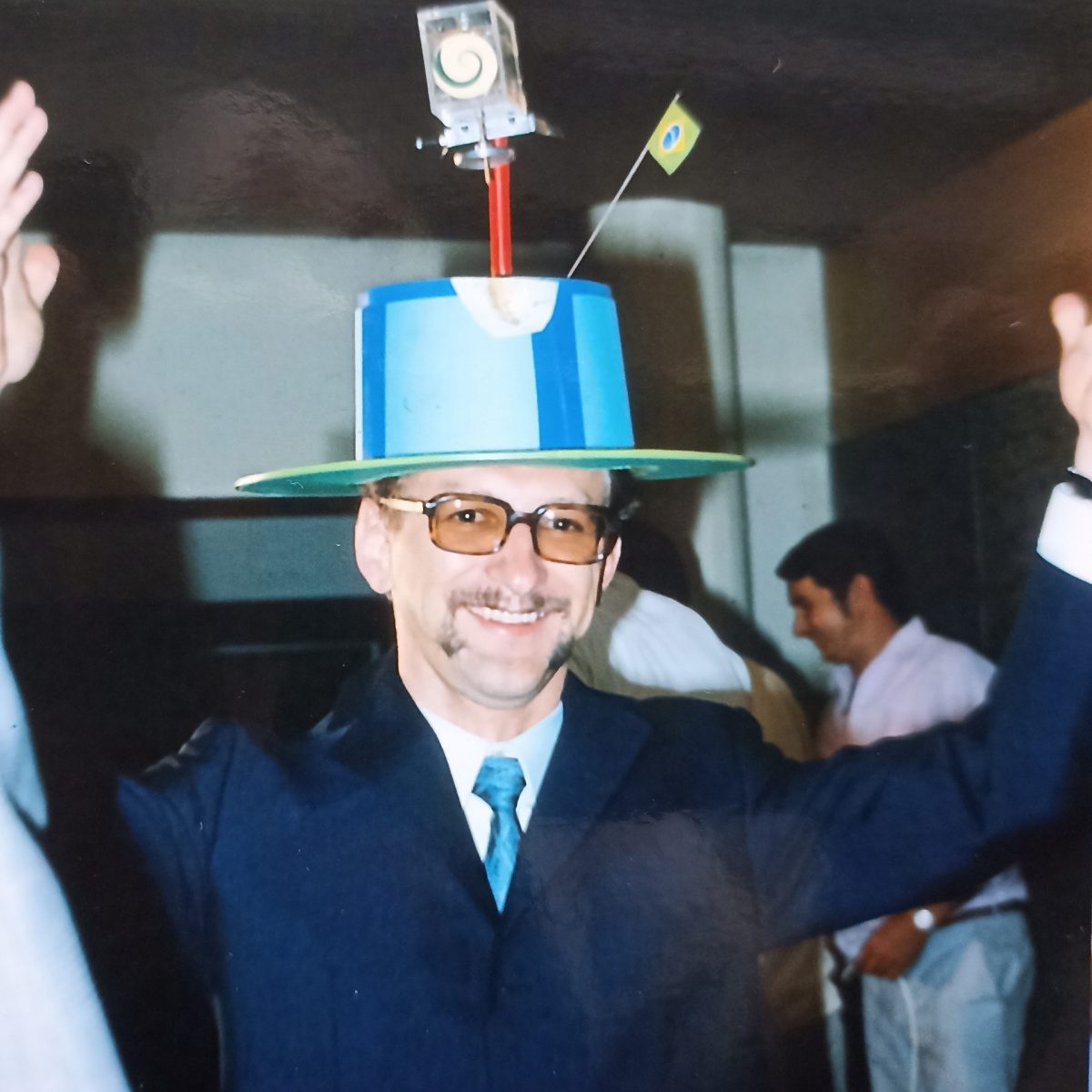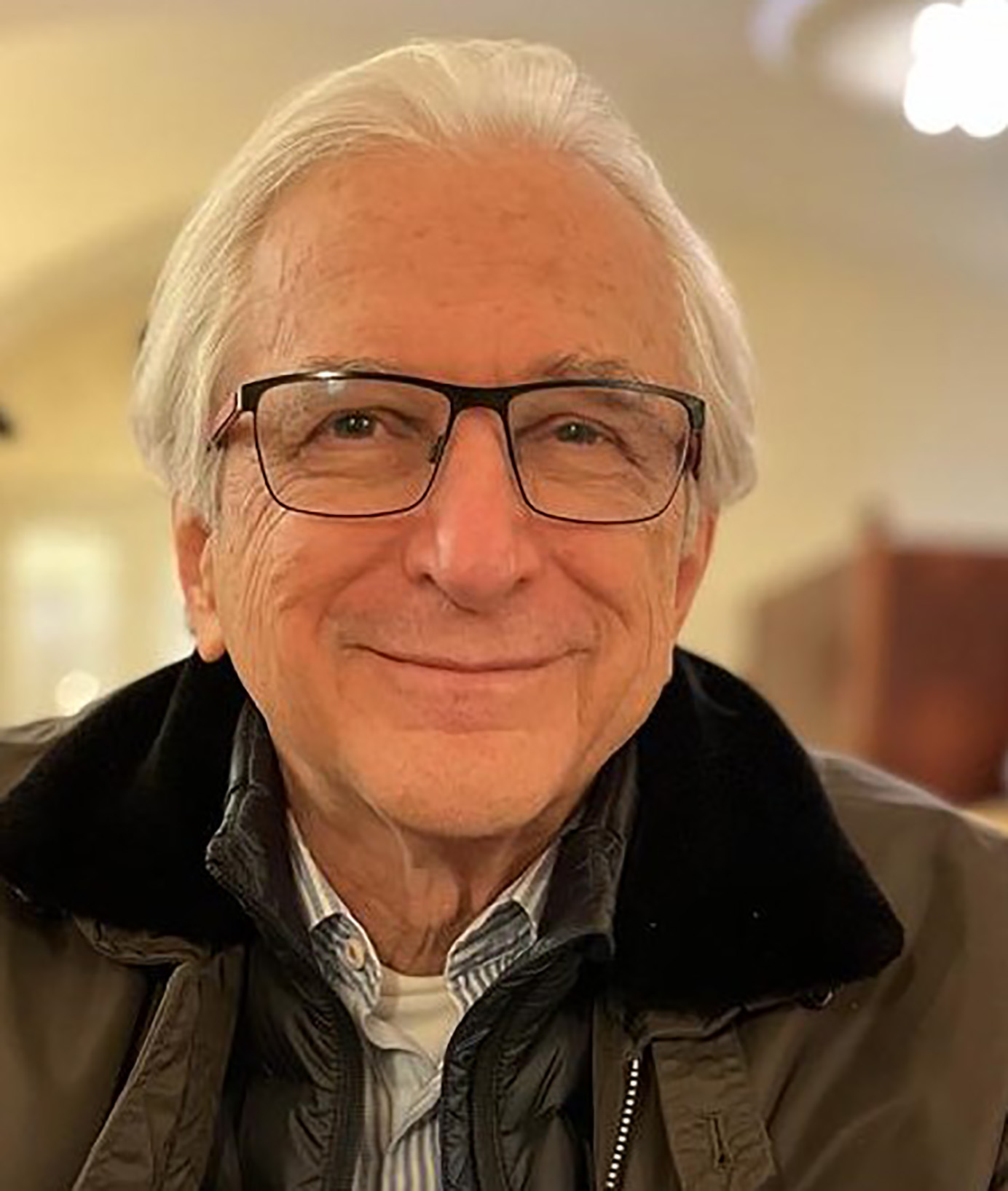
In 1971, Hans Ingo Weber received his PhD in Mechanical Engineering and received his doctoral hat after his defense. This should - fittingly for his research topic - represent a satellite, also oriented towards Rio de Janeiro (Photo: Hans Ingo Weber).
From South America, he traveled around 10,000 km to Munich to pursue his PhD under the renowned TUM professor and mechanical engineering pioneer Kurt Magnus. One transatlantic journey later, he arrived in Munich in October 1968 and immediately presented himself to Kurt Magnus in the Department of Mechanical Engineering. “A few weeks later, we agreed on a topic for me to investigate: the attitude control of satellites,” recalls Hans Ingo Weber. “At that time, it was a highly relevant topic, as many advancements were being made in satellite technology in the late 1960s, including the development of communication satellites and the use of satellites for scientific and military purposes.”
THE FOUNDATION IS LAID
In Munich and during the course of work on this innovative research topic, Hans Ingo Weber became aware that he had found his calling in mechanical engineering. The foundation for his later academic career as a professor, including at UNICAMP (Universidade Estadual de Campinas) in Sao Paulo and PUC (Pontifical Catholic University) in Rio de Janeiro, was thus laid.
Even today, as an emeritus at the age of 80, his enthusiasm for mechanical engineering topics has not waned. Looking back, he says that the start of his PhD at TUM was the decisive turning point in his life, determining his subsequent professional career: “My career is indeed entirely built on the fertile ground of the former Magnus Institute.”
One particularly significant project for him, based on friendships from that time, is the German-Brazilian cooperation Diname. Since 1986, this network of professionals has been exchanging ideas regularly on the topic of Dynamic Systems of Mechanics. Friends, collaborators, as well as former students of Weber, now participate in it
BACK IN BRAZIL
The scholarship for TUM not only allowed Hans Ingo Weber to achieve an important professional milestone but also enabled him to trace his own past. The engineer was originally from the Sudetenland. He was born during the war in September 1943. After the war, his mother and stepfather decided to emigrate.
In Canada, Australia, and Brazil were considered. “One was too cold, the other too far away, so it was Brazil,” says Hans Ingo Weber. An American troop transport ship brought the family to their new home in 1948. Twenty years later, when Hans Ingo Weber was a PhD student at TUM, he reconnected with a nearly forgotten past, got in touch with his biological father and maternal relatives in Vienna.
“I Have Gained Many Friends, with Whom I Still Maintain Contact.”
After completing his PhD at TUM, Hans Ingo Weber’s path led him back to Brazil, where he worked at several major universities in the country. Even today, he has an office at the University of Rio de Janeiro, where he welcomes students. “What enriches me the most spiritually is that I have accompanied so many students on their journey,” says Hans Ingo Weber. During his teaching career from 1973 to 2023, he supervised 28 doctoral students and 43 master’s students and guided them in their thesis work.
When asked for the most important advice he can give to future generations, he emphasizes values such as integrity and morality – in his view, the foundations of life: “Much in life comes to you unprepared, so you must always be ready and supported by integrity and morality to be able to make the right decisions.”

TUM Alumnus Hans Ingo Weber (Picture: Hans Ingo Weber).
Doctorate Mechanical Engineering 1971
Hans Ingo Weber, originally from the Gablonz district in the Sudetenland, grew up in Brazil. After completing his master’s degree in mechanical engineering in 1966, he began teaching at the Federal University of Rio de Janeiro (COPPE). With a scholarship from the German Academic Exchange Service (DAAD), he came to TUM, where he worked as a PhD student at the Institute for Mechanics under the supervision of Professor Kurt Magnus from 1969 to 1971. In July 1971, he defended his doctoral thesis with distinction.
He returned to Brazil, where he taught at the country’s major universities. Initially, he took up a teaching position at COPPE, the research and learning center of the Federal University in Rio de Janeiro, in 1972. In 1977, he became a professor at UNICAMP (Universidade Estadual de Campinas) in Sao Paulo; in 1998, he moved to PUC (Pontifical Catholic University) in Rio de Janeiro.
In 1986, Professor Hans Ingo Weber co-founded “Diname,” a German-Brazilian conference on Dynamic Systems of Mechanics. Fifteen German professors and 60 Brazilian colleagues met for the first time in Nova Friburgo, Rio de Janeiro. This cooperation continues to this day, holding specialized conferences every two years.
Now 80 years old, he lives with his wife in Rio de Janeiro and still mentors students. In his spare time, he is currently translating his book on the dynamics of rotating bodies from Portuguese to English. He enjoys visiting the nearby beach or going to the mountains. He regularly travels to Europe with his wife, his former place of study and birth.


